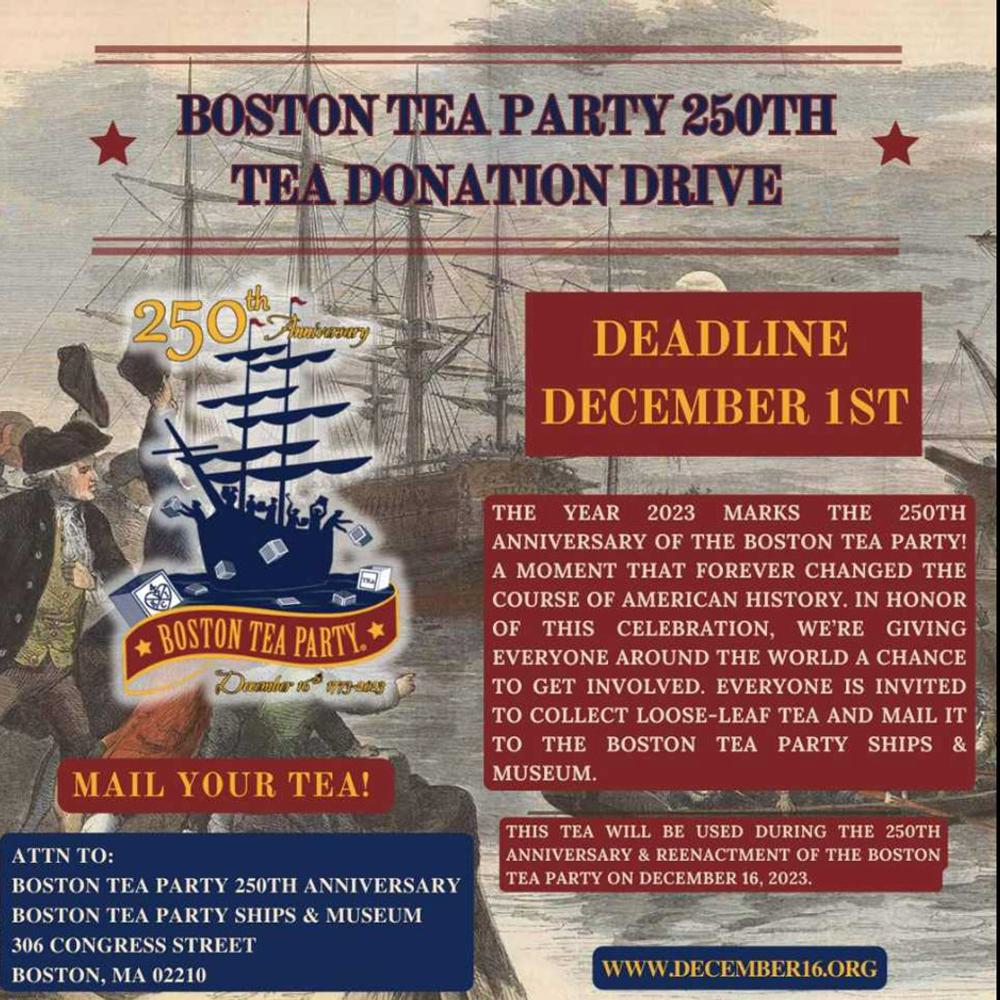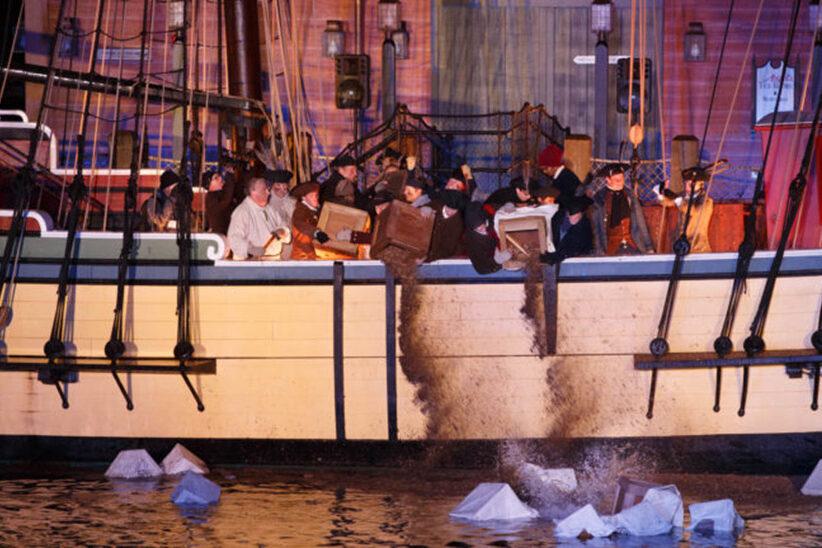It is a red-letter date in America’s founding. The Boston Tea Party will celebrate its 250th anniversary on December 16.
A quarter of a millennium has passed since that difference-making December day in 1773.
The grand-scale commemoration will re-enact the tea party at the Boston Tea Party Ships & Museum. Details here.
For Alabama patriots who cannot go to the re-enactment, you can still participate and be a presence there. There is an organized “Tea Donation Drive” to have modern-day patriots mail loose-leaf tea to the venue. It will be included in the large amount of tea scattered in Boston Harbor at the re-enactment on December 16.
To be included, tea should be mailed loose in an envelope to:
Boston Tea Party 250th Anniversary
Boston Tea Pary Ships & Museum
306 Congress Street
Boston, MA 02210
The deadline to put your tea in the mail is December 1.

The December 16 commemoration will be in four acts that trace the events of that day. It starts in Faneuil Hall and ends at the ships in the harbor.
The Boston Tea Party was an American citizen protest on December 16, 1773, led by the original “Tea Party,” the Sons of Liberty, in Boston in colonial Massachusetts. The target was the May 10, 1773 Tea Act, which allowed England’s East India Tea Company to sell tea from China in American colonies, taxed under the Townsend Acts. The Sons of Liberty, some disguised as American Indians, threw overboard an entire shipment of tea shipped by the East India Company.
The patriots boarded the ships and threw the chests of tea into Boston Harbor. The British government deemed the protest an act of treason and responded harshly. The episode escalated into the American Revolution.
The Tea Party was the natural climax of a resistance movement in the British colonies in America against the Tea Act, a tax passed by the British parliament in 1773. Colonists objected to the Tea Act, believing it violated their rights as Englishmen to “no taxation without representation” — to be taxed only by their own elected representatives and not by a parliament in which they were not represented.
There was a business reason for the protest movement. The East India Company, highly favored by British authorities, had been granted competitive advantages over colonial tea importers. They resented the move and the competitive disadvantage.
Protesters had earlier prevented the unloading of tea in three other colonies, forcing it to be shipped back. In Boston, Royal Governor Thomas Hutchinson would not allow the tea to be returned, so the controversy was at an impasse. A confrontation appeared inevitable. Hence, the Boston Tea Party.
The Boston Tea Party was a signal event that accelerated colonial support for the American Revolution. Parliament responded in 1774 with the Intolerable Acts, sometimes called “the Coercive Acts,” which ended local self-government in Massachusetts.
Colonists in many colonies responded to the Intolerable Acts with additional acts of protest. They convened the First Continental Congress in Philadelphia. It demanded the repeal of the acts and coordinated colonial resistance to them.
The crisis escalated, leading to the Battles of Lexington and Concord on April 19, 1775, the beginning of America’s Revolutionary War.
Since the original Boston Tea Party, other citizen protests, such as the modern-day Tea Party movement, have modeled themselves as historical successors to the December 16, 1773 Boston protest.
Jim Zeigler is a former Alabama Public Service Commissioner and State Auditor. You can reach him for comments at ZeiglerElderCare@yahoo.com.
Don’t miss out! Subscribe to our newsletter and get our top stories every weekday morning.










